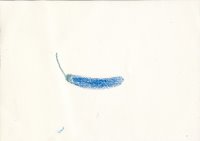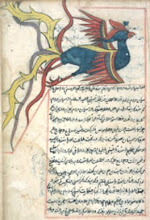
ONE
My family
Popular convention, or fiction, asks us to judge a man by his wealth, the beautiful women and dangerous places he has frequented, his handsome features passing through morally tedious landscapes ... and by these measures we would have to discard Andal. He has no layers of angst to be displayed in myriad perversions before a sublime finale. He has not even been intentionally evil: an altogether too ordinary man though with some strange habits.
Andal has always lived his life thoroughly, paying attention to detail. Already as a young man—in times of stress and difficulty especially—he wrote lists: fearlessly delving, crude truths, magical calculations and final decisions. One of those lists compared what he knew of where he lived with what he knew of where he might go. The old country versus the new country. The list leaned towards the new, so he came here.
Then, long after, with some bitterness, I know he made another list: the same comparison of old versus new, and went back to his old country. To die. That was over ten years ago now, and for these ten years he has missed us more than he could bear—I’ve heard it in his voice. No doubt he would have been working this gnawing pain into new lists, but I don’t imagine new lists could have offered him much relief.
His list-thing developed, slowly but continually, from when he was a young man: the first lists were a tool to organise things for practical purposes. As time went on he began trying to find meaning and pattern in his thoughts as revealed in his lists, and this led to him trying to more clearly understand the progression of how things had become as they were. Then eureka: he realised that if he could understand this progression then he might be able to draw them forward and into the future. And if that worked then it is clear he might try applying what he’d learnt to others, especially within his family.
The lists became a way for him to connect his cumulative personal experience—and he could test ideas from other people, or the books and magazines he sometimes read, against them.
After ten or more years of continual attention the word “list” was no longer adequate for what his work entailed. He’d sit, usually at night after work, developing his project through years of loving labour; so that in the end his notebooks produced nothing less than prophecy—a new science of prophecy. It’s not just intuition or some kind of mysticism at work, it is science: it’s based on hard information. Then a dash of intuition is thrown in. Some day he will be recognised for what he is ... a new science has been born and nobody knows it yet.
Before he returned to his old country Andal had already watched his children move from home and into the world. By then he had the comfort of knowing our developing characters and general destiny were written plain for him. This must have served him well, but from the old country our material progress and even our physical appearance become more and more difficult for him to visualise. Two of us moved to live in inner city suburbs he hardly remembered the names of and wouldn’t be able to find without a map.
Four children and only two addresses ... but then we move around a lot, sharing households, changing suburbs, moving out of the city for a time, we keep moving. It doesn’t bother me but half the time I wouldn’t have more than two addresses myself. He’d sit in deep disquiet sometimes, thinking about his children dissolved into a fluid vast space; he said he’d seen Mum’s eyes, fleetingly, glimpsed amongst women’s wild-berry eyes juicy in the village; ‘it’s obvious I’ve come from this earth, and so has your mother’, he would say.
Only two addresses which he couldn’t even be sure were up-to-date and so many millions of people all busy—but Andal had a way of dealing with this consuming swirl of movement: first, make a list, and second, go straight there wherever “there” is according to the list.
I think Andal’s thinking and working through lists kept him linked to us: he was able to chart our growth as human beings—and he was able to touch our spirit. Andal, from what I’ve seen of his last years of life, has contained a quiet happiness and peace which becomes more lucid each day. If going away is what he felt he had to do to meet his needs ... well I’ve always kept my support for him even though some certain others have declared him to be completely crazy.
All these years past he has thought of us every day, Mum especially of course. He knows where she sits to eat her breakfast and dinner, where she does her grocery shopping, most of her friends ... But she wouldn’t go to live with him in the old country, and he couldn’t stay in the new with us. Mum once spoke his language well, she’d heard it from her parents as a child. I’ve heard her speaking myself when I was still very young, with Andal, and I learnt a few words too; but it was obvious it never became her own language, just collections of other ways of saying things.
Mum told me I brought some of those few words to school with me, not really knowing the difference, and that it caused problems. I’ve always wondered how our lives would have been if we’d been more “native” to this country. At the very least people get too curious and try to work out where you’re from by your accent or family name, even if they won’t say it to your face. And then they bring prejudice into the game. That’s just the way it is.
As the years went on eventually Mum didn’t speak his language, not much any more, and his grasp of our language slipped day by day. His letters to me have always been well-written though the language is a bit odd; but writing is different to speaking and unlike many other foreigners who learnt here the hard way, on their own time, his written words remained much stronger than the spoken.
First, years ago, it was the rare foreign word let slip in a preoccupied moment which revealed his mind switching back to its natural tongue. Then he wanted the food he knew from his mother’s table, or in mid sentence he would suddenly pause, empty of some banal word of the new world … and he’d seen them and was terrified: the fortunate ones nursed by resentful family, or flung into nursing homes where nobody spoke the language in awful isolation; others left babbling in the streets waiting for the meanest government institution. Or, to those that can escape capture and remain free comes the final fury-frothing cough which dribbles lung to stain soiled dark jackets and cold street pavements. He left. She stayed.
Sometimes, reflecting back into the distance of the new country, having returned to an old country which in many ways had changed so much that it was also now in a sense new as well; he once said that it all seemed to make his old life, this old life here in the new country which in some ways was his most real life … it all drifted into the unreal, none of it seemed to have much to do with him, it was all just vague and incomplete memory tumbling in a large swirling. The young people there are becoming more like us, he told me. I’m sure even the way people his own age speak and think, the fabric of community, all these have changed but he’d missed the progress and would now be forced to make uncomfortable jumps to catch up.
Deep within the tumble of thought our family would merge into the big swim, sometimes drifting sometimes thrashing, just out of his reach; and though he knows where we are, visibility would continually worsen as the distance of time allows.
There, where his choice of words is quaint and outdated in the changed old country, he’d gone to die.
Death, he thought, if he planned for it, would be easier and more meaningful. But how does one plan for death—with lists comparing the benefits and negative aspects? Probably not.
In fact my father planned meticulously for his death from the day of his return to the old country, and he knew it would all run smoothly. Although there were hiccups: the main one occurring when his cousin, the local funeral company’s head who had been entrusted with the process, became ill, then died. We’re talking about the same cousin that had helped carry my grandfather’s coffin, a grandfather who I never knew, years ago.
So Andal wrote out directions clearly, gave a copy to his neighbours in a sealed envelope, and sent one to Mum. Though for him all this was only superficial and worldly: he desired his walk to the desert to make as little disturbance as possible: footsteps on the soil, then in the sand, he said, soon becoming the merest indentations, and dissolving with the next winds and rain.
- From The Fanatic by Eric Kellenbach 2006



No comments:
Post a Comment